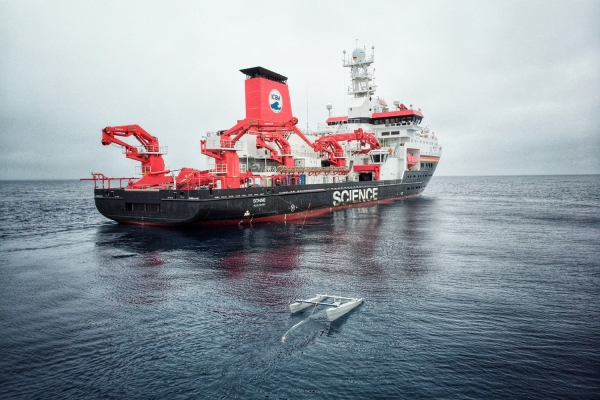When plastic ends up in the ocean, it gradually weathers and disintegrates into small particles.
When plastic ends up in the ocean, it gradually weathers and disintegrates into small particles. If marine animals ingest these particles, their health can be severely affected. Large accumulations of plastic can therefore disrupt the biological balance of marine ecosystems. But which areas are particularly affected?
In a recent study, a research team from the Helmholtz Centre for Environmental Research (UFZ), in collaboration with the Alfred Wegener Institute Helmholtz Centre for Polar and Marine Research (AWI), has found large quantities of plastic waste and microplastics in a remote marine protected area in the Pacific Ocean. These quantities were similar to those found in one of the world’s largest known garbage patches. The researchers highlight that plastics are distributed much more widely than expected. The entire ocean ecosystem is threatened. They therefore call for the global emissions of plastics into the ocean to be stopped as quickly as possible. The study has been published in Environmental Science & Technology.
"Plastics in the ocean are a serious problem. Every year, millions of tonnes of plastics end up in the ocean via rivers and wind as well as from shipping and fishing - and it remains there. It is still difficult to assess the consequences for the ocean ecosystem", says UFZ environmental chemist Prof Annika Jahnke, coordinator of the MICRO-FATE project, which made the study possible. What is the distribution of plastics in the oceans? Which areas are particularly affected? Are there any plastic-free zones? And what properties do plastics have close to the source or far away in the open ocean?
Read more at Helmholtz Centre for Environmental Research - UFZ
Image: Neuston net towed on the side of the German RV SONNE, collecting surface-floating plastic samples when crossing the North Pacific Ocean.
Photo Credit: Philipp Klöckner / UFZ




